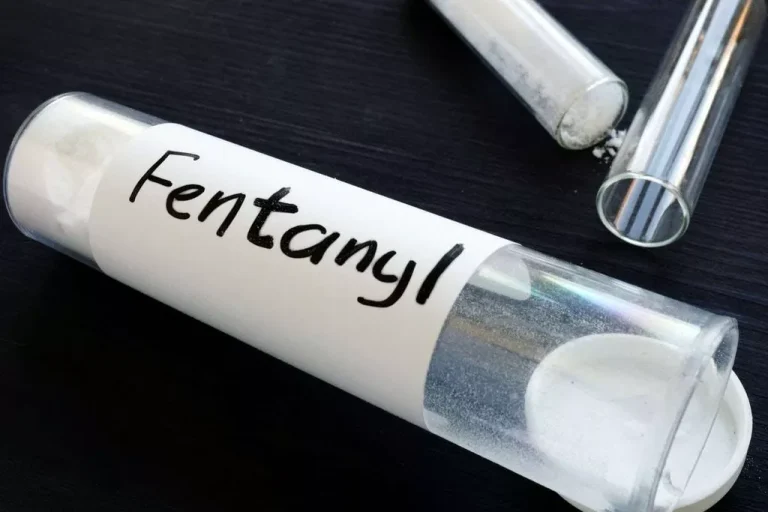Finding out How Long Does Fentanyl Stay in Your System and the First Signs of Addiction

Drugs became a major issue in the USA, leading to a concerning surge in overdose deaths. Fentanyl has emerged as a potent and deadly player in the global crisis. At Eco Sober Houses, we witnessed firsthand the destructive effects of addiction on individuals and their families. It is a crisis that demands immediate attention, voicing, and intervention.
Now we will delve into the reality of fentanyl addiction and explore how to identify dependency in your family member or soulmate. Likewise, we will explore how long does fentanyl stay in your system and deliver valuable information for addicts and their families.
What is fentanyl, and why is such addiction so serious?
To begin with, fentanyl refers to the opioid class of drugs. It is primarily used to manage severe pain, such as in cancer treatment or post-surgery recovery. However, illicitly produced this substance has flooded the market, contributing to the growing epidemic of drug abuse and overdose deaths. It is often sold illegally. Its popularity is based on effect because this substance is estimated to be 50 to 100 times more potent than morphine.
The seriousness of addiction lies in the following:
- High risk of fentanyl overdoses: Fentanyl’s potency is what sets it apart from other opioids. Even small amounts end in a life-threatening overdose. Due to its strength, users often miscalculate the dose or unknowingly consume fentanyl-laced substances, putting themselves at grave risk.
- The rapid development of dependence: The drug rapidly alters the brain’s chemistry and leads to addiction. This means that individuals require increasingly higher doses to achieve the desired effects, increasing the likelihood of overdose and making withdrawal symptoms more intense and challenging to endure.
- Devastating health consequences: Prolonged fentanyl abuse takes a severe toll on the body and mind. Addicts face respiratory depression, heart problems, cognitive impairment, depression and anxiety. The risks of contracting infectious diseases through needle-sharing also escalate among intravenous drug users.
- Emotional and social impact: Fentanyl addiction deeply affects personal relationships, career prospects, and overall quality of life. The all-consuming nature of addiction often leads to strained family ties, isolation, financial difficulties, and legal troubles.
The high and relaxation it induces make it highly addictive, leading individuals to misuse and develop a dependency on the drug. Those who fall into the fentanyl fold often face a devastating addiction, affecting their own lives and their families, friends, and entire communities.

Take back control of your life and start on the road to recovery now.
How to identify fentanyl addiction
Discovering that your beloved family member or friend is struggling with addiction is distressing. Early identification of addiction is a key to successful treatment. This guide aims to help relatives recognize the signs of problems in their loved ones and encourage them to seek professional help.
One of the first pointers of fentanyl addiction is noticeable changes in behavior. Look out for the following:
- Withdrawal from social activities and isolation: The individual may start avoiding social gatherings and activities they previously enjoyed. They prefer to isolate themselves from their usual circle of communication and spend time alone.
- Erratic mood swings: Frequent mood swings, agitation, irritability, and hostility are the pointers of drug misuse.
- Neglecting responsibilities: A decline in fulfilling personal, professional, and familial obligations may become evident.
- Secretive behavior: Addicted individuals may become secretive about their whereabouts and activities.
Next, it is advised to pay attention to changes or strains in interpersonal relationships:
- Frequent conflicts with family members, friends, and partners may arise.
- Your loved one might break promises and be dishonest about their activities.
- Unexplained financial issues, borrowing money frequently, or financial irresponsibility may surface.
Spotting drug-related items is a clear indication of fentanyl addiction. Finding used needles or syringes in the person’s belongings or living area. The presence of burnt aluminum foil or spoons could suggest drug use. Unlabeled pill bottles or empty blister packs might signify misuse of prescription fentanyl.

Several words about metabolism and elimination
When you take fentanyl, it enters your bloodstream and travels all over your body. The liver plays a crucial role by breaking down the chemical into different inactive parts. These parts are then removed from the body through urine by the kidneys. The half-life of fentanyl is a basic concept. It means the period it takes for half of the drug to be eliminated from your body. This time can be different for each person, depending on individual factors.
According to studies on how long does fentanyl stay in your system, the average half-life of intravenous chemicals is around 2 to 4 hours. For transdermal patches, it ranges from 17 to 52 hours, depending on the specific product. Other oral substance compositions may have half-lives between 7 and 17 hours.
Dr. John Anderson, manager from the NY rehab, says: “While estimated clearance times provide a general understanding, it’s important to remember that everyone’s body is different. Fentanyl clearance is influenced by various factors, and individual variability is common. Relying on professional guidance and medical supervision is crucial for managing drug use and ensuring safe detoxification.”
Factors affecting how long does fentanyl stay in your system
Several aspects can influence how long does fentanyl stay in your body. Age, liver function, metabolism, and concurrent substance use can all affect the rate at which chemical is eliminated. Younger individuals tend to clear more quickly than older adults.
Liver function plays a crucial role in metabolizing, so individuals with impaired liver function may have a longer clearance time. Metabolic rate also contributes to the speed of elimination, with faster metabolism resulting in quicker clearance. Additionally, concurrent use of certain medications or substances may interact with fentanyl and affect its elimination.
Detection windows
In case you suspect someone may be using fentanyl, it’s vital to visit the laboratory together and consider having them undergo a fentanyl drug test so that you can confirm your suspicions.
The detection window refers to the time period during which the drug and its metabolites are identified in various biological samples. They vary depending on the sensitivity of the testing method and the specific sample being analyzed. Here are some estimated data for how long does fentanyl stay in your system:
- Urine: The chemicals are found in urine during 1-2 days after intake.
- Blood: The drug can typically be identified in blood during 12-24 hours after administration.
- Hair: Fentanyl remains in the hair during 90 days or even longer, depending on hair growth and length.
- Saliva: It typically is detected in saliva during 1 to 2 days after use.
Medical professionals and addiction specialists emphasize the importance of seeking professional guidance when it comes to detoxification. Here are some expert insights on substance clearance:
Dr. Sarah Thompson, the addiction consultant, says: “It’s crucial to remember that the duration of how long does fentanyl stay in your system can vary among individuals. Factors such as metabolism, liver function, and dosage play a significant role. If you or someone close is battling dependence, seek medical advice for support and treatment options.”

This can be a difficult journey, but you don’t have to go it alone. Let us be your guide and provide you the environment needed to regain control of your life and begin the path to recovery.
Don’t battle alone
Understanding how long does fentanyl stay in your system is crucial for various reasons, including medical treatment, testing, and addiction management. While general estimations and detection windows can be helpful, it’s important to remember that individual factors influence the clearance process to a greater extent. Seeking advice from healthcare professionals is vital to obtain accurate information and support regarding drug use and detoxification.
At Eco Sober Houses, we understand the challenges of fentanyl dependence. Our experienced team of specialists provides comprehensive addiction treatment programs encompassing detoxification, counseling, therapy, and aftercare support. With a focus on holistic healing and personalized care, we empower individuals to reclaim their lives from addiction and build a brighter future.
Recovering from fentanyl addiction is a courageous step, and seeking professional help is a vital part of the process. Call us now, and we will navigate the path to recovery and create a life free from the grips of addiction.




